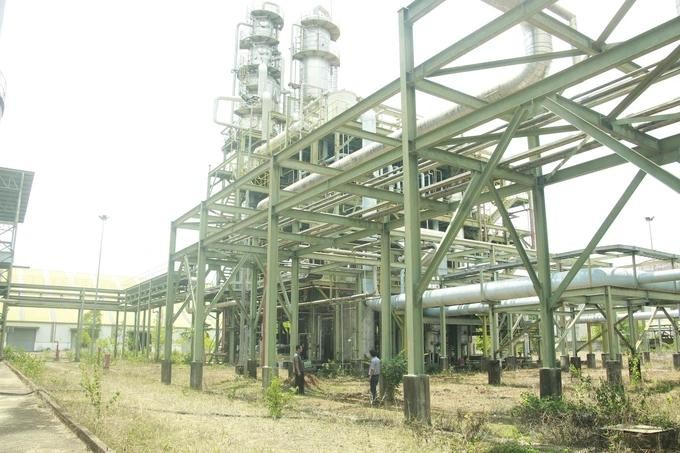E5 gasoline hardly competes with other kinds in both price, quality
Society – Economy - Ngày đăng : 11:27, 21/08/2024

Central Petroleum Biofuel Joint Stock Company (BSR-BF), Phuong Dong Biofuel Company Limited (OBF), and Phu Tho Petroleum and Biofuel Chemical Joint Stock Company (PVB) are investors in the biofuel production projects in Quang Ngai, Binh Phuoc, and Phu Tho. The investment capital for these projects comes from the shareholders of BSR-BF, OBF, and PVB, as well as loans from credit institutions. Therefore, the implementation of investment activities and the consideration of business production plans to ensure feasibility are under the autonomy and responsibility of the investors according to market mechanisms.
Domestic and international suppliers provide material for businesses manufacturing E100 (pure ethanol after production) to blend 92-E5 gasoline. Currently, domestic E100 supply comes from Vietnam Biofuel Company with a plant in the Central province of Quang Nam and Nha Xanh Company with a plant in the Southern province of Dong Nai.
Additionally, there are foreign suppliers renting Vam Co bonded warehouse in Dong Nai Province to participate in sales. Ethanol imports mainly come from the USA and some Asian countries such as South Korea, Japan, and Singapore.
Oil and gas businesses choose to source domestically or import based on competitive factors, opting for the cheaper source along with favorable logistics. Currently, about 23 out of 30 key oil and gas traders sell E5-RON92 gasoline in their distribution systems.
Following the Government’s policy to develop and encourage biofuels in Vietnam, approximately 80 percent of stores in the distribution systems of oil and gas businesses are now selling two gasoline products including E5-RON92 biofuel and RON95 mineral gasoline across 63 provinces and cities. The consumption volume in recent years is about 2-2.5 million cubic meters per year.
The Ministry of Industry and Trade has been implementing solutions to encourage the use of biofuel, such as flexibly managing gasoline prices to create a reasonable price difference between mineral gasoline and biofuel (a difference of about VND800-VND1,200 a liter depending on the pricing period); coordinating with the Ministry of Information and Communications to carry out various propaganda measures to encourage the use of biofuel. However, the consumption of biofuel - a mixture of 95 percent petrol and 5 percent ethanol in Vietnam is still low compared to traditional mineral gasoline.
One of the reasons for the low consumption is that the price difference is not attractive enough for consumers to choose E5RON92 gasoline. Businesses state that the price of E5RON92 is not much cheaper than mineral gasoline partly because the production cost of E5RON92 is high, including processes such as blending, quality inspection, storage, transportation, and distribution.
Additionally, E5 gasoline must be stored and sold quickly within one week; if E5 gasoline is kept for the second week, its quality and color change, and it will not pass quality inspection; hence, fearing that they will get penalties for selling substandard fuel, many businesses avoid selling this fuel.
Moreover, E5 gasoline evaporates faster than mineral gasoline, so if not sold quickly, the quantity decreases, leading to inefficient business operations.
At present, the Ministry of Industry and Trade continues to direct the Departments of Industry and Trade in provinces and cities, as well as key oil and gas businesses, to implement plans for the supply and distribution of E5-RON92 biofuel to meet market demand. The Ministry is also coordinating with the Ministry of Finance to review documents and develop pricing and tax mechanisms to encourage the use of E5-RON92.
Furthermore, the Ministry is leading and coordinating with relevant ministries and sectors to promote international cooperation, leveraging technical and technological resources to develop the production and use of biofuels in Vietnam, contributing to Vietnam’s commitment to achieving net-zero emissions by 2050.
The Ministry of Finance is also urgently developing and submitting to competent authorities for issuance of preferential tax policies for the import of equipment and parts not yet produced domestically for projects developing the blending, distribution, and business network of biofuel products. These include preferential tax policies for biofuel products at different stages of the roadmap and tax regulations for biofuel production materials in line with the national biofuel development orientation and current practical conditions.
